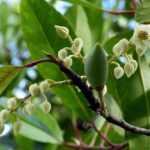The Elderberry tree has long been known for its medicinal properties and various therapeutic uses. In today’s article, let’s explore this fascinating plant in detail.
1 What is Elderberry?
Elderberry, also known as Sambucus Nigra, is a soft-wooded tree belonging to the Sambucaceae family. Native to North America, Europe, and East Asia, this tree has a long history and is now cultivated worldwide, especially in Vietnam.
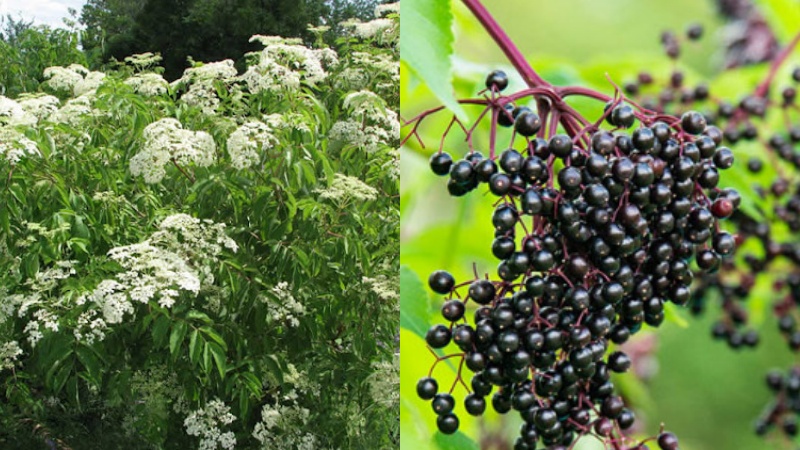 All About Elderberry
All About Elderberry
Elderberry is characterized by its soft, light green wood, and can grow up to 3 meters tall. Its branches are hollow, with white pith inside and a porous surface.
The leaves are soft and compound, with serrated edges. Elderberry bears small, fragrant white flowers that grow in clusters and bloom from May to September. Its fruits are spherical, ripening from red to a deep, dark black.
Elderberry trees are commonly found in mountainous regions, along streams and ravines in the Vietnamese provinces of Lai Chau, Lao Cai, Cao Bang, Lang Son, and Lam Dong.
2 Nutritional Composition and Mechanism of Action
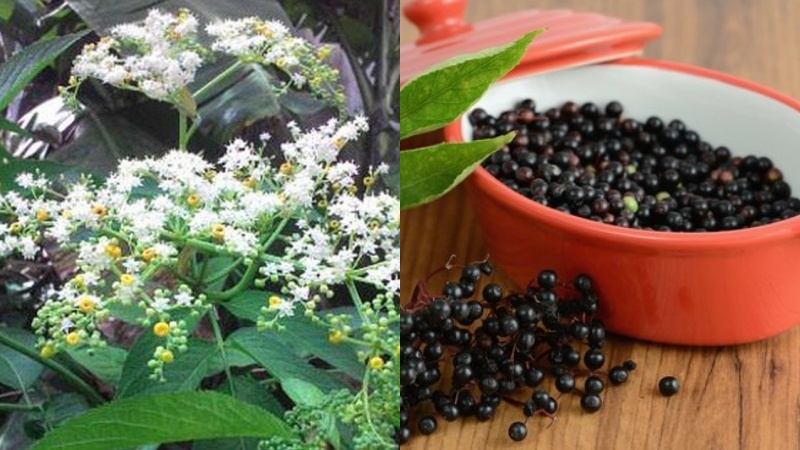 Nutrient-Rich Flowers and Fruits
Nutrient-Rich Flowers and Fruits
Elderberries are low in calories but packed with essential vitamins and minerals, including vitamin C, dietary fiber, and flavonoids like anthocyanins and flavonols. They also contain notable amounts of phenolic acids and phytonutrients.
Additionally, the flowers of the elderberry plant provide a good amount of phenolic acids.
3 Benefits of Elderberry
Elderberry offers a range of health benefits:
Treats Flu and Colds
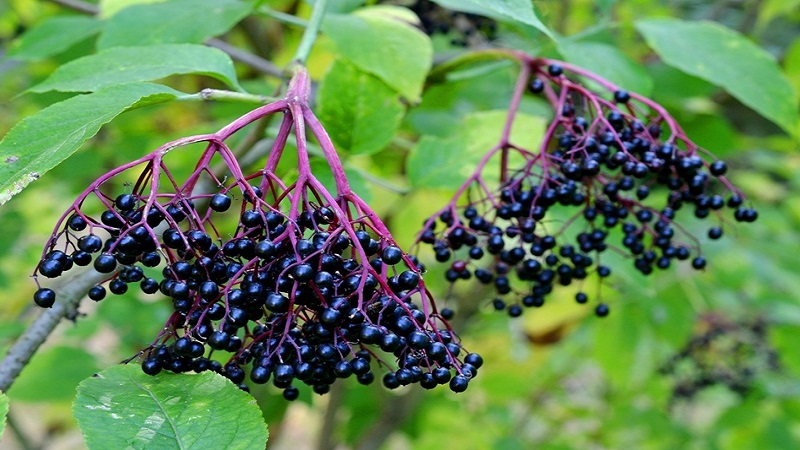 Elderberry Fights the Flu
Elderberry Fights the Flu
The nutritional richness of elderberry helps protect the body against flu and cold viruses. A 2016 study at Griffith University in Australia found that travelers who consumed elderberry for 15 days (10 days before travel and 5 days at the destination) experienced a 2-day shorter duration of colds and reduced cold symptoms.
Boosts Immunity
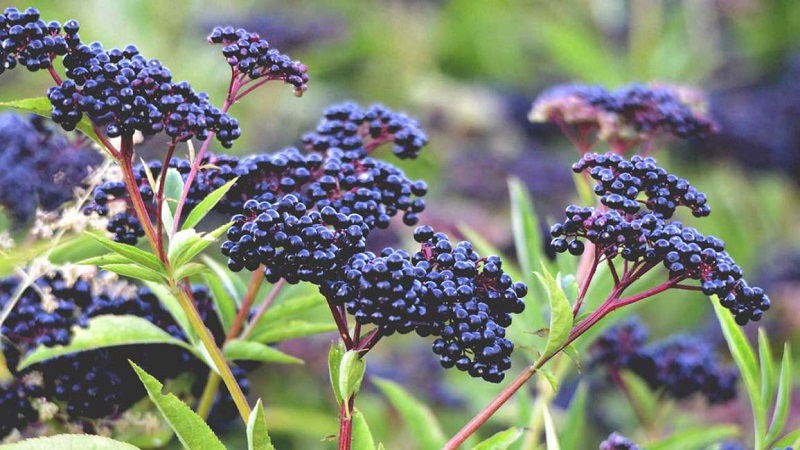 Elderberry Boosts Immunity
Elderberry Boosts Immunity
Elderberries are rich in potent antioxidants, which strengthen the immune system. German researcher Dr. Gerhard Rechkemmer found that the anthocyanins in elderberries promote cytokine production, enhancing the body’s immune response.
Improves Digestion
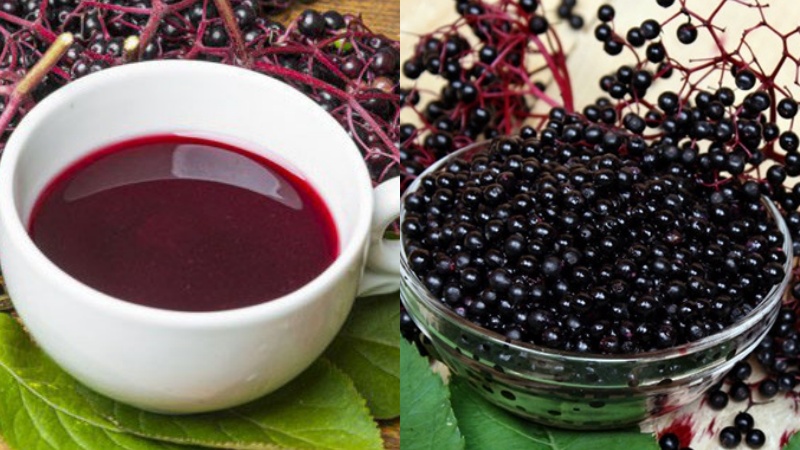 Elderberry Aids Digestion
Elderberry Aids Digestion
The high fiber content in elderberries helps relieve constipation and reduce excess gas, promoting efficient nutrient absorption and a healthier digestive system.
Treats Allergies
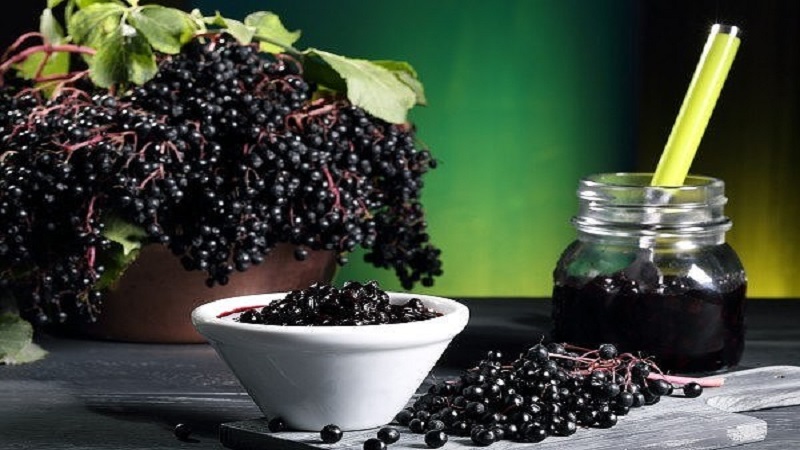 Elderberry Fights Allergies
Elderberry Fights Allergies
In addition to its other benefits, elderberry’s anti-inflammatory and immune-boosting properties help alleviate symptoms of sinusitis, sneezing, itching, and congestion. It’s especially beneficial for those allergic to pollen and helps improve respiratory health.
4 How to Use Elderberry
 Using Elderberry
Using Elderberry
To make a herbal tea, infuse 3-5g of dried elderberry in boiling water for 10-15 minutes. Drink this infusion three times a day. Alternatively, follow your doctor’s instructions for capsules or lozenges.
For sinus infections, take 2 tablets of Sinupret 3 times a day. For colds and flu, try Sambucol, 4 tablespoons per day for 3 days.
5 Side Effects of Elderberry
Despite its many health benefits, elderberry, if consumed incorrectly (such as eating raw or undercooked fruit), may cause nausea and diarrhea. It can also interact with medications for diabetes and chemotherapy, altering their effectiveness and potentially causing side effects.
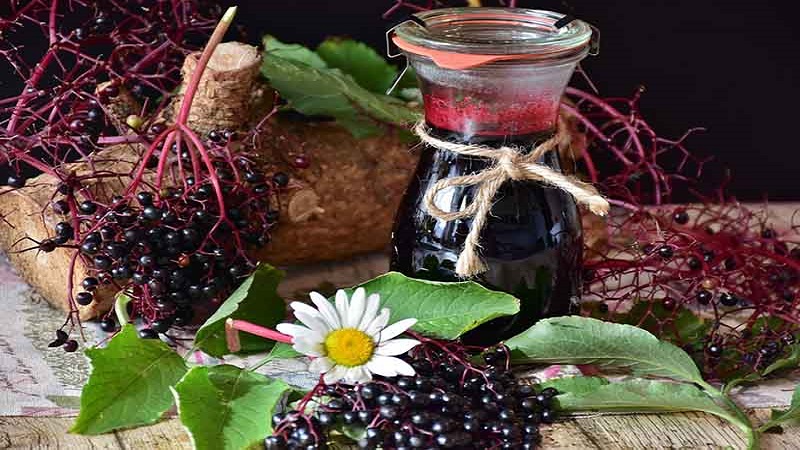 Side Effects of Elderberry
Side Effects of Elderberry
6 Precautions When Using Elderberry
As with any herbal remedy, use elderberry preparations in moderation. Here are some important precautions:
- Always follow your doctor’s instructions for dosage and do not stop taking elderberry without medical advice.
- Pregnant and breastfeeding women, as well as children, should seek professional advice before using elderberry.
- Ensure that you thoroughly cook elderberries before consumption.
- Combine elderberry with a balanced diet and healthy lifestyle for optimal therapeutic benefits.
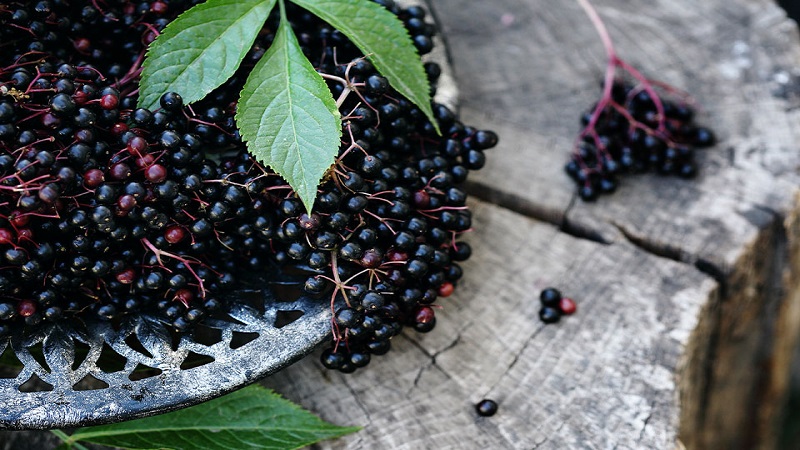 Precautions When Using Elderberry
Precautions When Using Elderberry
This article has provided a comprehensive overview of the elderberry tree and its benefits. We hope you’ve gained valuable insights from this information.




























